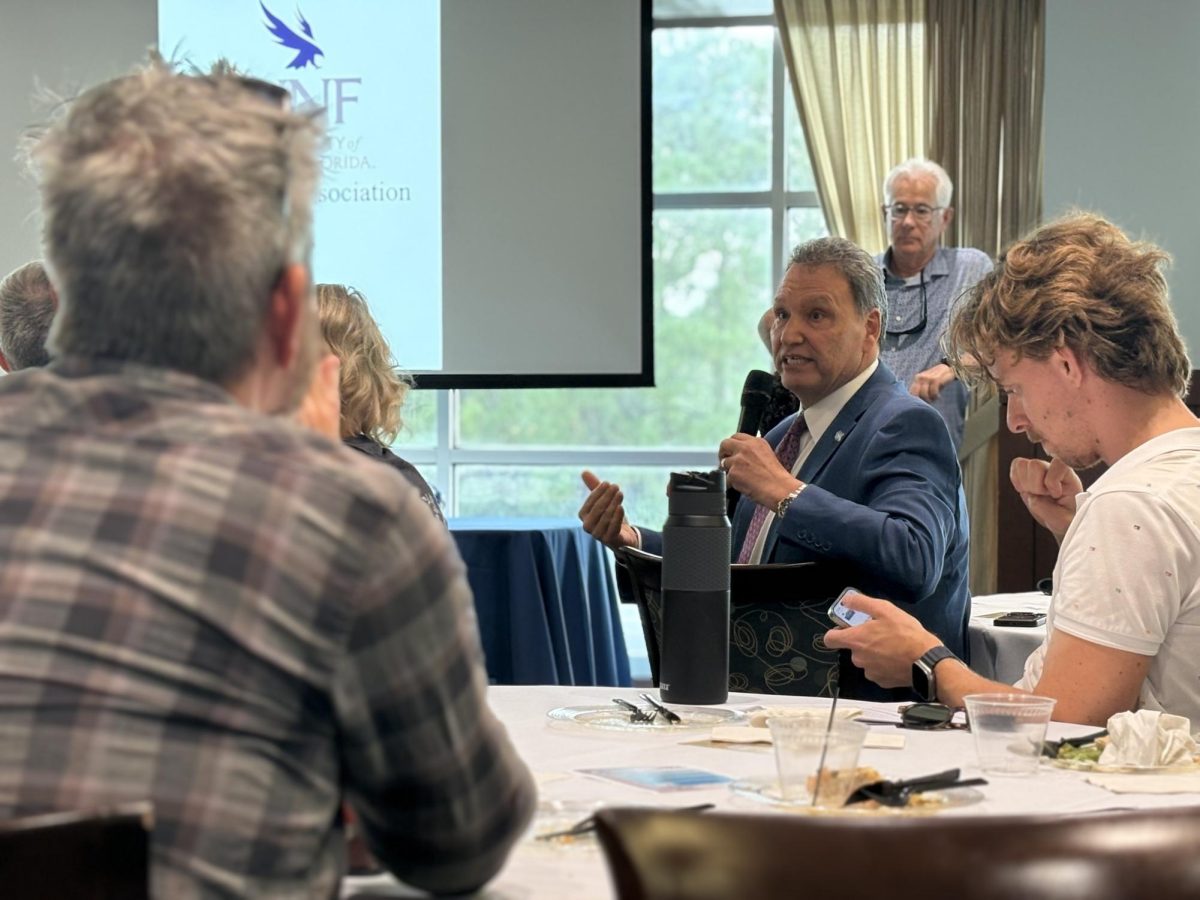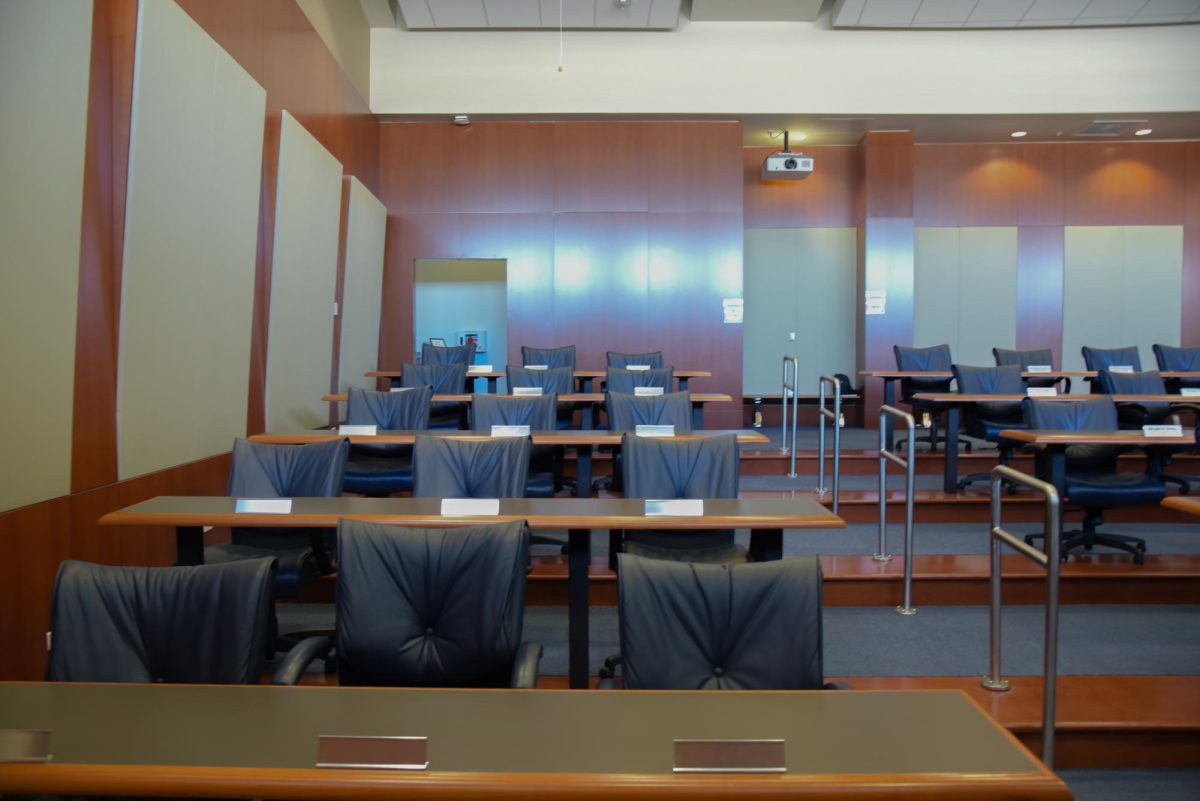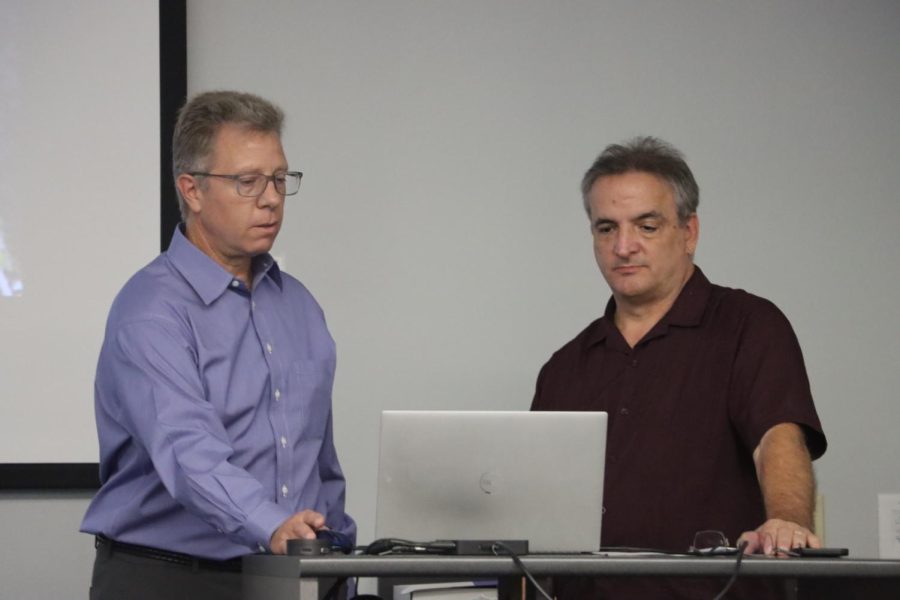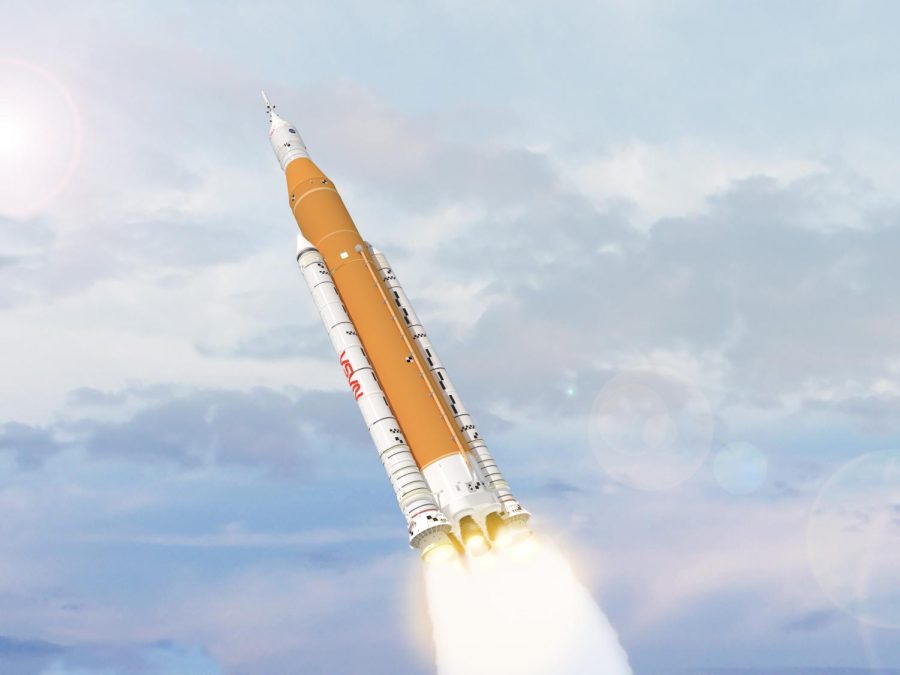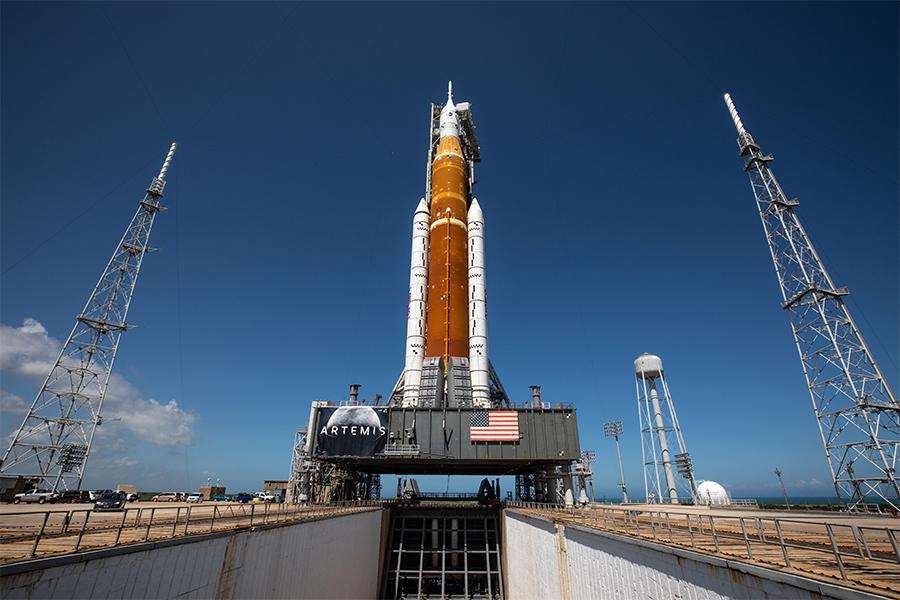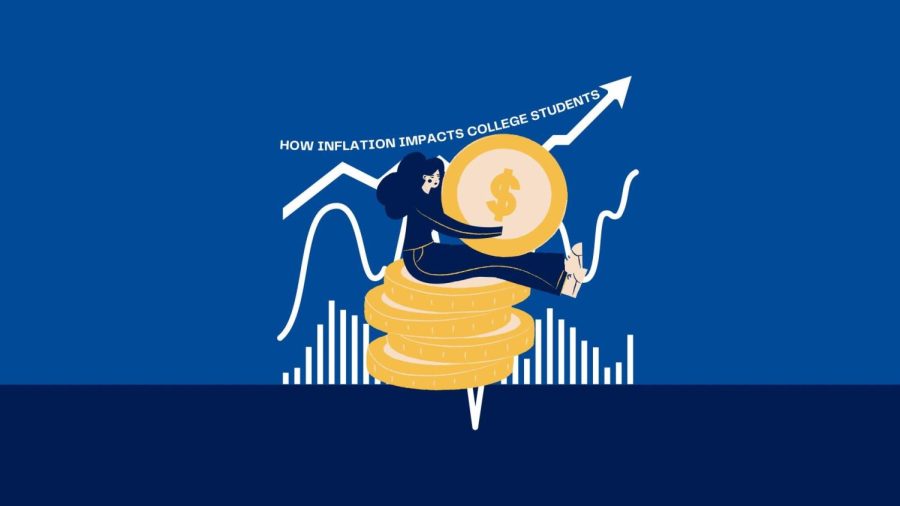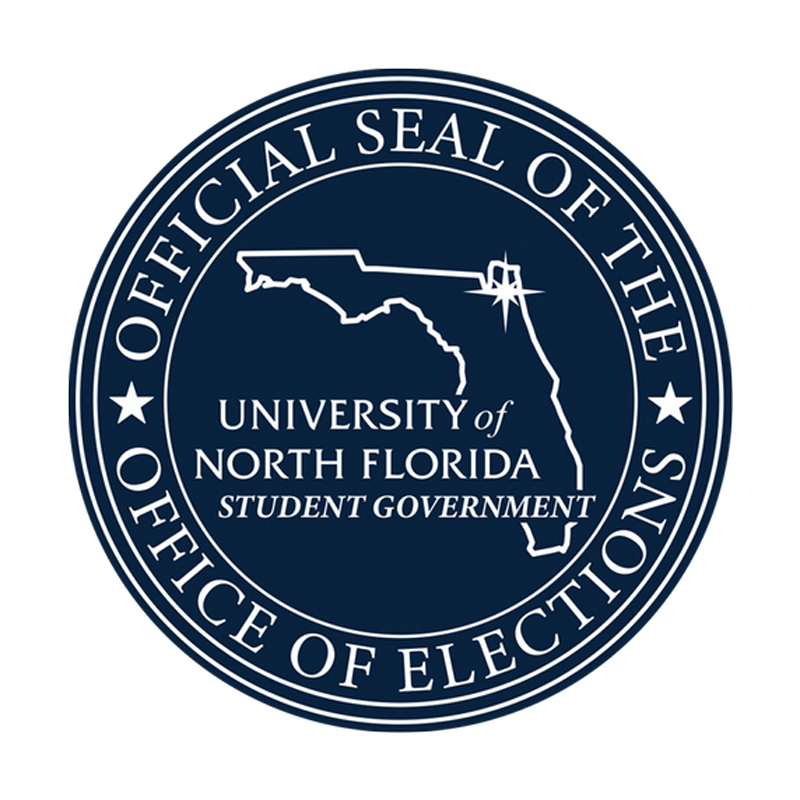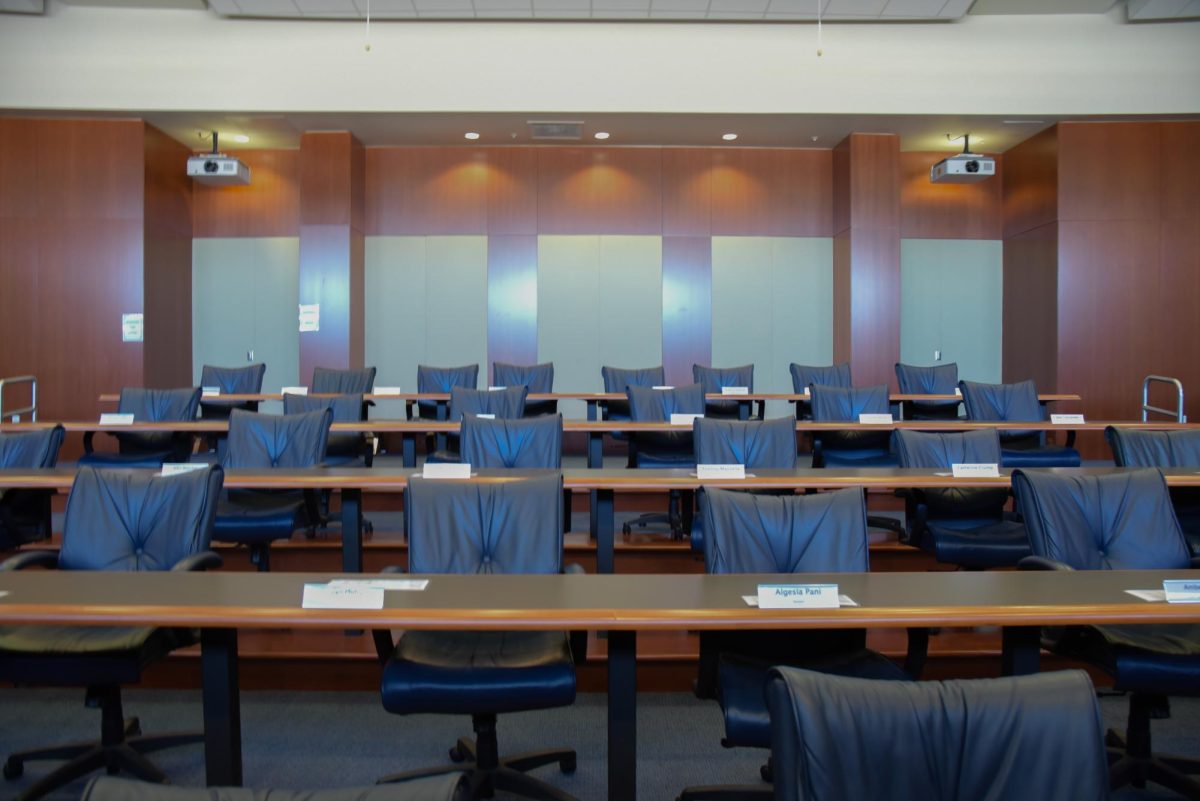Spinnaker Radio requested $38,978.43 from Student Government to fund the construction of a low power FM (LPFM) radio station that could broadcast approximately in a 3.5 mile radius from campus. No other business was on the agenda for the B&A meeting Thursday evening. The request died when no committee member would make a motion to vote on using A&S for the equipment and installation.
“I support the idea of the request and the end goal, but I disagree with how the way the Spinnaker wanted to get there,” said Joseph Turner, Student Body President. “This project does not have to be done on the backs of students, with student fee revenue.”
The FCC granted Spinnaker Radio permission for a construction permit to obtain and install a LPFM radio transmitter this spring.
Scott Young, Spinnaker Radio Station Manager, said out of approximately 2,800 nationwide applicants for construction permits, about 1,200 received a permit and Spinnaker Radio was one of the those approved.
“We have 18 months to get things installed, tested, test programming, and make sure we do the proper filings and notifications with the FCC,” Young said. “And if we can be operational within that 18-month window, they will award us with the low-power FM license.”
The 18-month window began in January 2014. Young said it is the first step to being able to expand broadcast capabilities that could eventually cover all of Jacksonville.
It took 13 years for the application window to open, Young said, and he doesn’t know the next time the opportunity will present itself, even though Spinnaker Radio can ask for an extension from the FCC. However, the FCC may not grant the extension for the permit and may never open the spectrum again, he said.
Young said the LPFM Spinnaker Radio broadcasts would reach nearby commercial areas like the St. Johns Town Center and Tinseltown and would cover the new housing developments being built along the Beach Boulevard corridor.
Turner said previous student body presidents have supported the idea of (then Osprey Radio) broadcasts but never faced actually funding the project. He said he believes Spinnaker should fund the project with the money in their auxiliary fund.
However, John Timpe, Director and Advisor for Spinnaker Media, said the auxiliary fund primarily pays for staff, equipment, and printing the magazine.
Connor Spielmaker, Spinnaker Television Manager, said general funding from advertising and student government is down over the past few years and described the auxiliary fund as an emergency reserve that would fund Spinnaker Media for six months if all other revenue sources run dry. Timpe said six months is a standard amount across student media throughout the country to keep in reserve.
“Getting an LPFM radio is a huge deal for UNF,” Spielmaker said, but “We have to have emergency funds in order to operate.”
“The UNF Board of Trustees has their name on the license,” he said. “We’ve spent hours on hours on hours already in money and wages to lobby to get the university to do this. This was one of our biggest initiatives and to see it go up in smoke without even a motion to vote on it is disheartening.”
Regarding Spinnaker’s auxiliary fund, Turner said, “I don’t think using [it] will put Spinnaker or any Spinnaker entity in a negative position to fund this project because in four years from now, you’ll make a profit and be in a better position than you were today.”
Student Government had $85,834.78 still available in the Fiscal Year 2014 special requests budget on Thursday. Before Spinnaker’s motion even went to the floor, SG motioned to apply all future requests to the Fiscal Year 2015 budget.
What happened at the meeting
Spielmaker and Young spoke first about Spinnaker and the state of college media. Then there was a discussion period between the committee members and the Spinnaker representatives.
Discussion ended when Collin Waychoff, SG Chief of Staff, provided his version of a 10-year revenue history of Spinnaker to the committee members. Turner said he asked Waychoff to fact-check revenue increases and decreases explained from previous interviews with Spinnaker staff for clarification.
Turner said he doesn’t know if the three voting members of the committee made a decision to not vote on the request before the meeting.
What will happen in the future
Timpe said that if there is a mechanism to bring the bill back to the Senate or there is a change of heart, then Spinnaker will maintain hope. He said now Spinnaker Radio must find other means of funding.
Young said it’s still Spinnaker Media’s long-term goal to establish a LPFM radio station and incorporate the community in the UNF experience. “We’ll look to alternative funding sources to make this happen. I still think this works in the best interest of the university and the student body. And it’s something the Board of Trustees has expressed support for. So now we just have to figure out a way to make it happen. The Board of Trustees name is on our petition for a license. This will become possibly the biggest venture in the history of student media at UNF; and certainly one that has been a long time in developing, and it’s not by any means over, but it’s happening less quickly than it could have.”
Email Brandon Thigpen at reporter2@unfspinnaker.com





